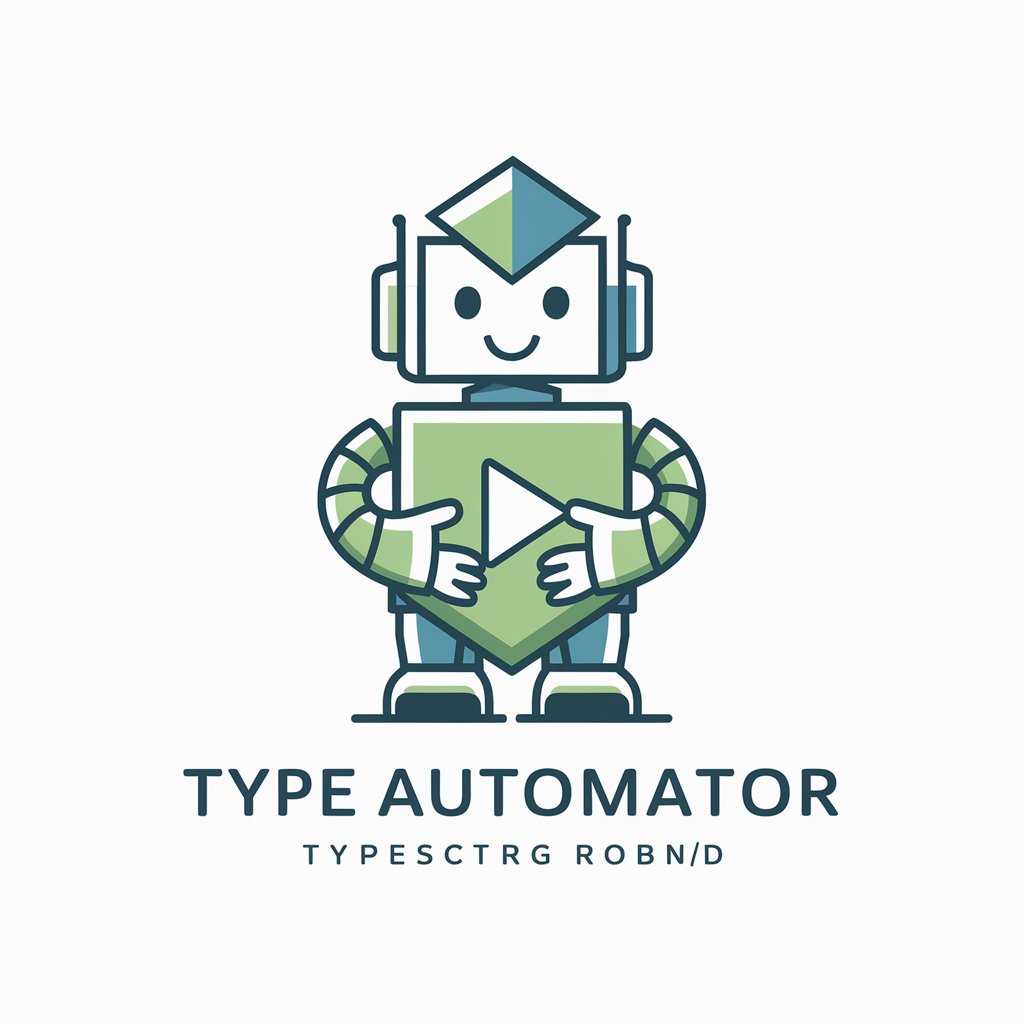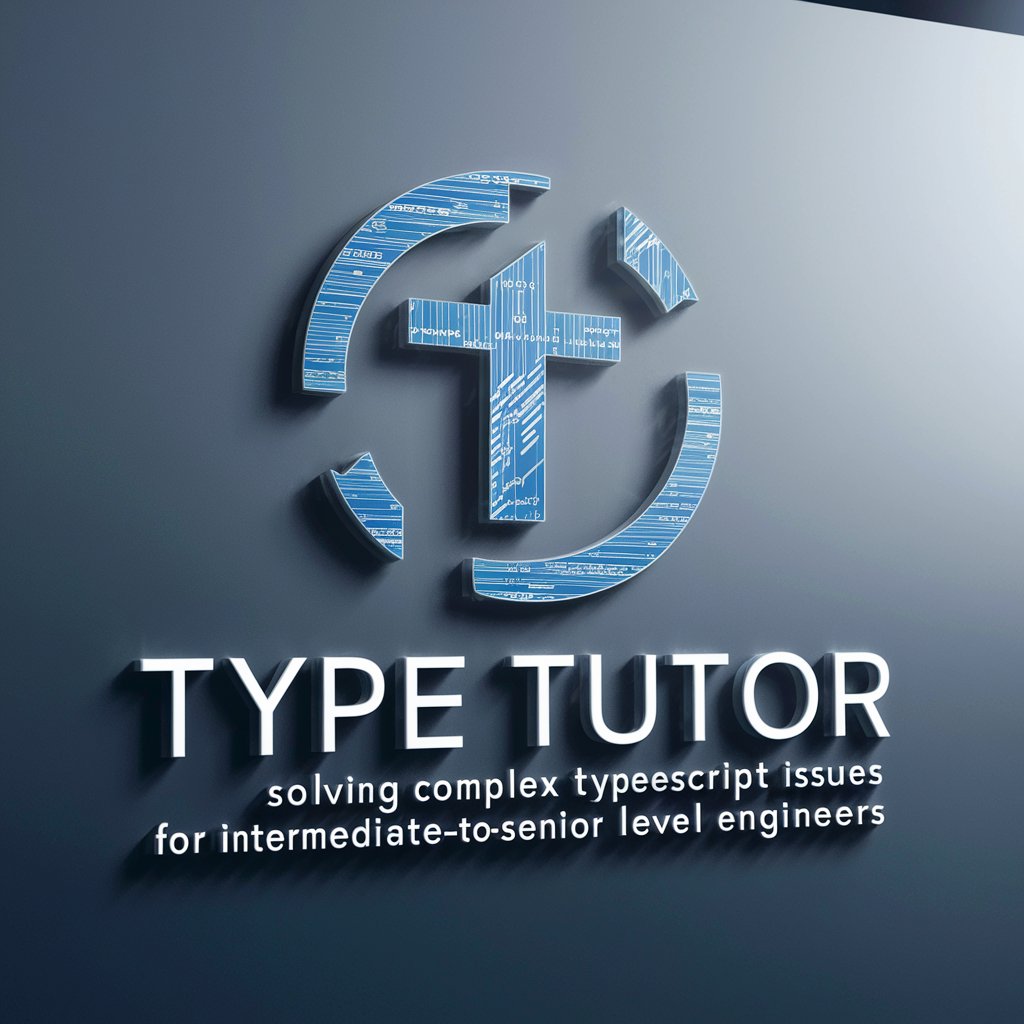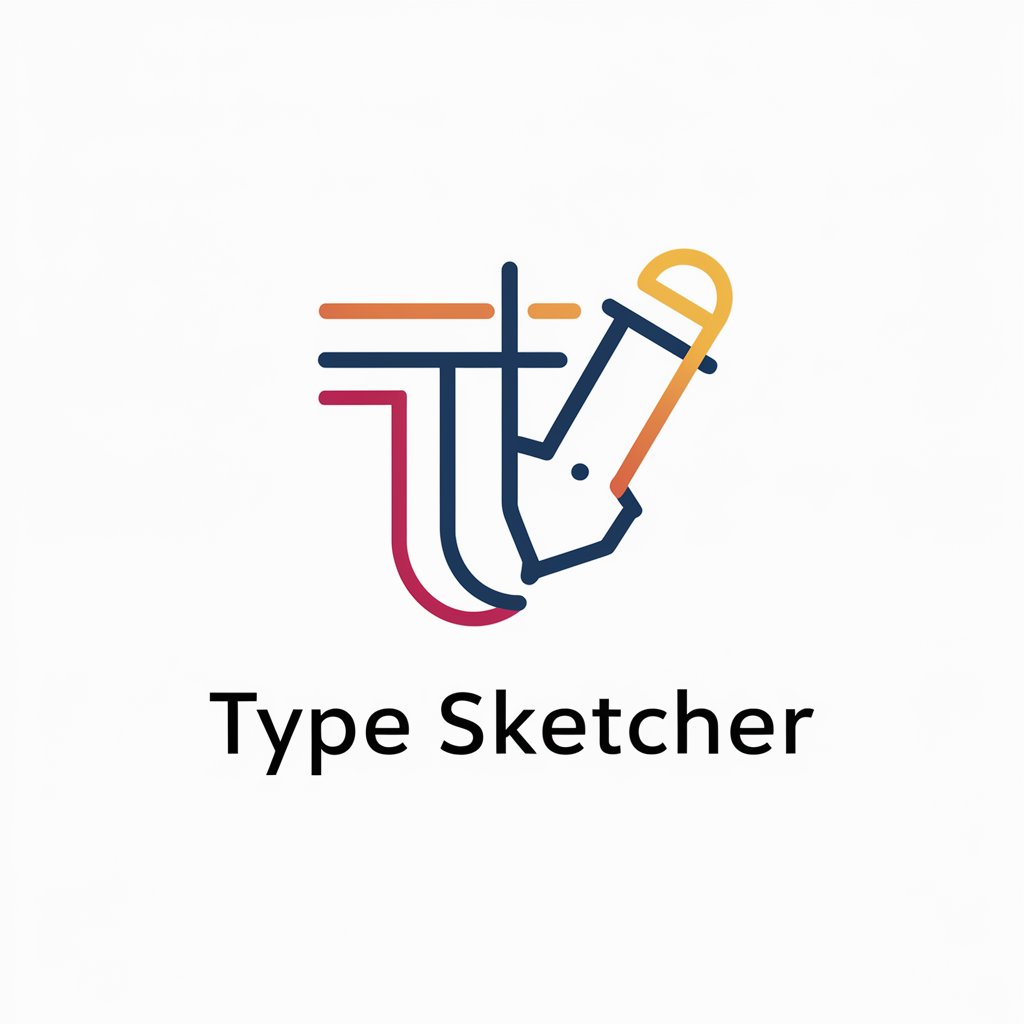
Type Automator - TypeScript Interface Automation

Hey there! Need help with TypeScript? Let's get coding!
Streamline TypeScript with AI
Generate a TypeScript interface for an API response that includes user details and preferences.
Create an enum for different user roles in a web application using TypeScript.
Design a TypeScript type for a product catalog, including optional properties for discount and availability.
Write a TypeScript interface for a blog post with metadata such as tags, author, and publication date.
Get Embed Code
Overview of Type Automator
Type Automator is a specialized assistant designed primarily to aid developers in the generation and management of TypeScript interfaces, especially in contexts where these interfaces interact with API data. Its core function is to translate complex API documentation or data structures into clean, efficient, and easy-to-use TypeScript types. This capability simplifies the task of integrating API responses into TypeScript applications, ensuring type safety and aiding in the development of robust frontend and backend applications. By using Type Automator, developers can automatically generate accurate TypeScript representations of JSON objects, manage optional and nullable fields effectively using TypeScript’s ‘?’ notation, and maintain a clear and concise codebase. Powered by ChatGPT-4o。

Core Functionalities of Type Automator
Generating TypeScript Interfaces
Example
// Given a JSON object from an API: { 'id': 1, 'name': 'John Doe', 'email': null } interface User { id: number; name: string; email?: string; // Note the use of '?' for nullable field }
Scenario
This functionality is pivotal when developers are dealing with RESTful APIs where JSON data needs to be strongly typed in a TypeScript application. It ensures that the data conforms to expected types, enhancing code reliability and developer productivity by providing compile-time type checking.
Adapting Enums from API Data
Example
// API returns: { 'status': 'active', 'statuses': ['active', 'inactive', 'pending'] } export enum UserStatus { 'active', 'inactive', 'pending' } export type UserStatusType = keyof typeof UserStatus;
Scenario
Useful for APIs that define a limited set of allowable values for certain fields, Type Automator can automatically generate TypeScript enums and associated types from these values. This is especially helpful in maintaining consistency with backend data validations and frontend type usage.
Custom Type Transformations
Example
// API returns a complex structure: { 'details': { 'firstName': 'John', 'lastName': 'Doe' }, 'isActive': 'true' } interface UserDetails { firstName: string; lastName: string; } interface User { details: UserDetails; isActive: boolean; // Automatic type transformation from string to boolean }
Scenario
When API data does not directly match the TypeScript data structures, Type Automator can transform data types to better fit TypeScript standards, such as converting strings to booleans or numbers to enums. This is critical in applications where data integrity and type correctness are paramount.
Who Benefits Most from Type Automator?
Frontend Developers
These developers benefit from Type Automator by having a tool that seamlessly integrates API data into their TypeScript projects. It reduces bugs related to type mismatches and enhances the development speed by automating the interface generation process.
Backend Developers
Backend developers, particularly those who design APIs, can use Type Automator to provide clear contracts for what types of data are sent to and from their servers. This helps in maintaining a consistent data structure across different parts of an application.
Full-stack Developers
This group reaps the dual benefits aimed at both frontend and backend applications, ensuring that data types are consistent throughout the entire stack, reducing the overhead in managing data types manually across the frontend and backend.
API Designers
API designers can use Type Automator to prototype and iterate on API responses quickly. By automatically generating TypeScript types, they can visualize and adjust how data structures will be handled in the frontend, facilitating a smoother design process.

How to Use Type Automator
Initial Access
Visit yeschat.ai for a trial without the need for login or a ChatGPT Plus subscription.
Explore Capabilities
Navigate to the 'TypeScript Assistant' section to understand the range of features available such as generating TypeScript interfaces from API documentation.
Start a Session
Initiate a coding session by providing a sample API schema or describing the data structure you need to convert into TypeScript interfaces.
Interact and Refine
Use the interactive chat feature to refine your TypeScript code. You can make adjustments to ensure the interfaces meet specific requirements or coding standards.
Apply and Integrate
Integrate the generated TypeScript code into your project. Test to ensure compatibility and functionality within your existing codebase.
Try other advanced and practical GPTs
Trail Guide
Navigate Nature with AI

法律顾问
AI-powered Legal Insight at Your Fingertips

法律专家
AI-driven Legal Expertise

法律顾问
Empowering Legal Decisions with AI

法律鹰
Your AI-powered Chinese Legal Advisor

法律助手
Empowering legal decisions with AI

CF | Type 1 Diabetes ⚕️
Empowering Diabetes Knowledge with AI

Type III Oracle
Empowering futuristic insights

Type Coach
Enhance Typing Skills with AI

Type Tutor
Empower your TypeScript with AI

Type Designer
Empowering Design with AI-Driven Typography

Type Sketcher
Empowering Creativity with AI Typography

Type Automator FAQs
What is Type Automator primarily used for?
Type Automator is designed to help developers convert complex API documentation into clean, efficient TypeScript interfaces, aiding in quicker and error-free development.
Can Type Automator handle nested and complex data structures?
Yes, Type Automator can process deeply nested and complex data structures, providing clear and scalable TypeScript interfaces that can be directly used in projects.
Is there any prerequisite knowledge required to use Type Automator effectively?
While Type Automator simplifies TypeScript coding, basic understanding of TypeScript and API structures is beneficial for optimal use and customization of generated code.
How can Type Automator improve my development workflow?
By automating the generation of TypeScript interfaces, Type Automator minimizes manual coding errors, speeds up development time, and ensures consistency in type definitions across projects.
Does Type Automator support updates to API changes?
Type Automator can assist in updating existing interfaces when API changes occur, helping maintain up-to-date type definitions with minimal manual intervention.





